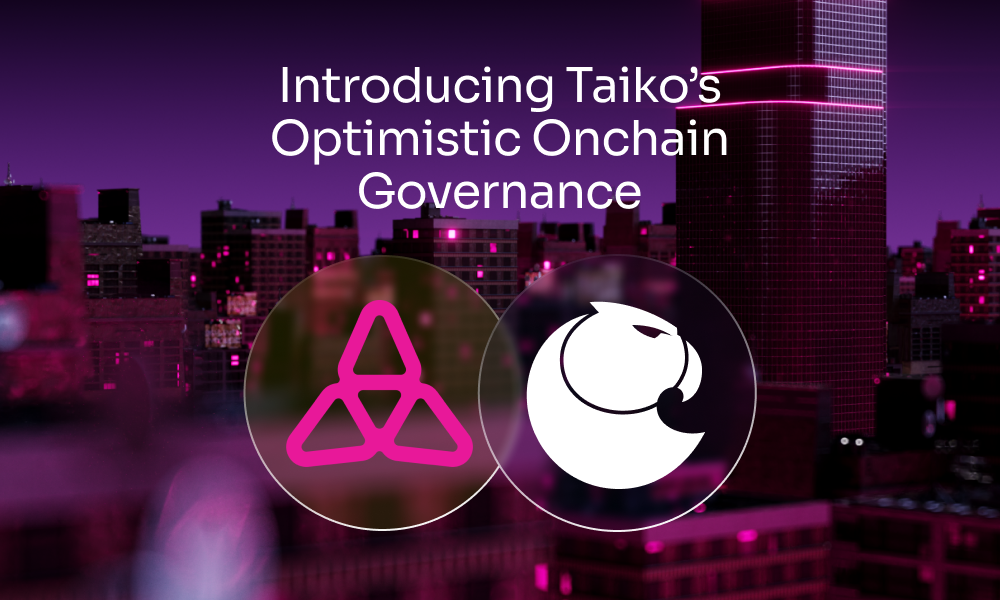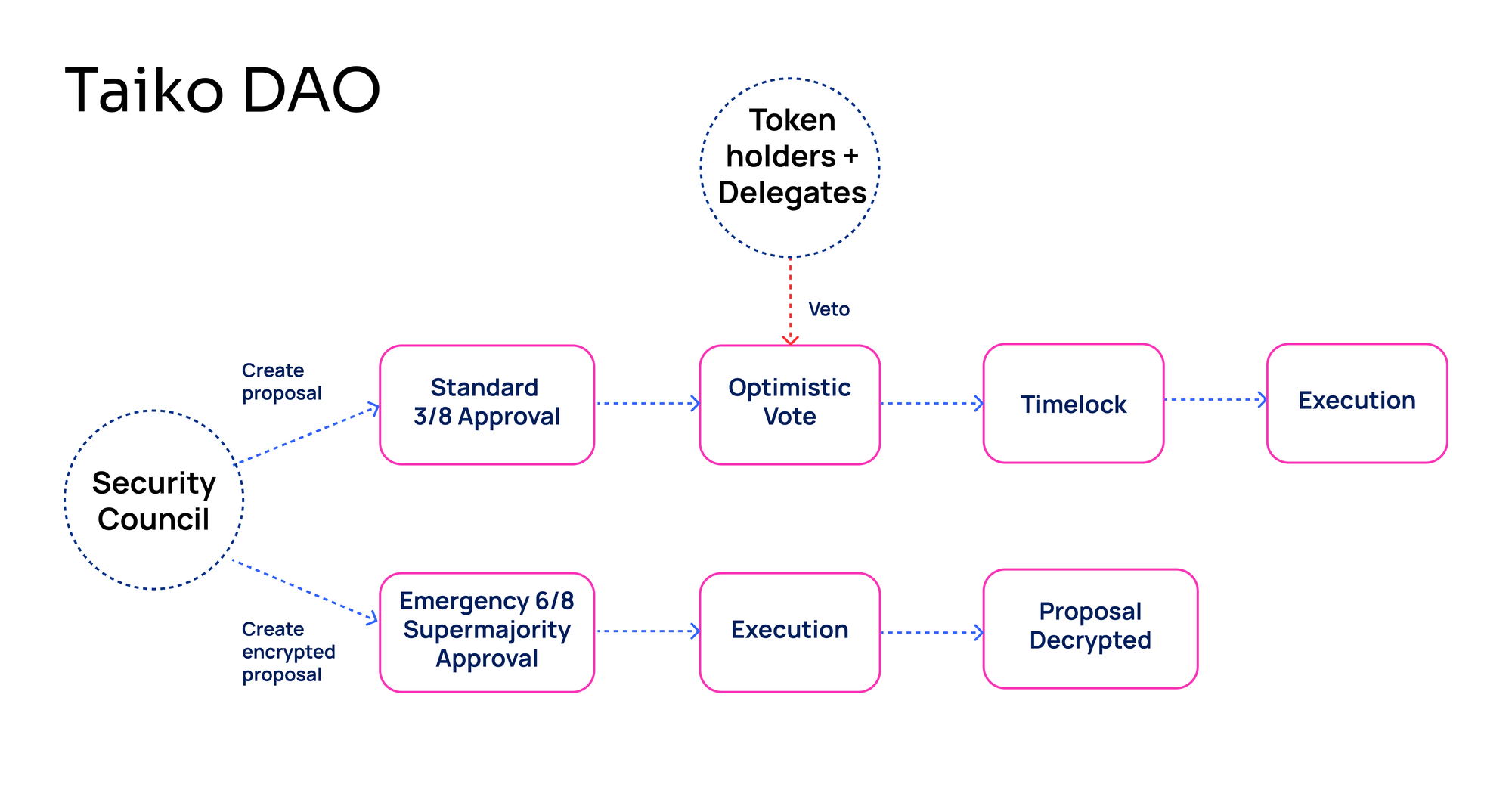
We’re excited to announce the decentralization and security-focused onchain governance design of the Taiko DAO. This milestone marks a significant step forward in Taiko’s governance roadmap to fully decentralized protocol governance.
TLDR:
Taiko is an Ethereum-equivalent zkEVM based rollup that is open, permissionless, and requires no additional trust assumptions, as security is derived from Ethereum validators. Vitalik proposed the first block on Taiko Mainnet and has endorsed it for its advancements in decentralization for L2s.

Taiko is deeply committed to Ethereum’s core values, such as decentralization, permissionlessness, and trust minimization. This not only applies to the unique technical architecture of their rollup, but also their commitment to giving the community onchain rights in the protocol upgrade process.
Taiko is using optimistic governance which enables a streamlined decision-making process that balances efficiency with community checks and balances. This design allows the Security Council to pass proposals, while giving token holders onchain veto rights. This means token holders can veto a malicious proposal and/or have the opportunity to exit. If a proposal doesn’t accumulate enough votes by the end of the veto period, it is automatically executed after an additional 7-day timelock. Giving token holders onchain veto rights and an opportunity to exit serves as both checks and balances and an additional security layer. It also combats voter fatigue, as voters only need to participate when a veto is needed.

In addition, Taiko is incorporating the multi-threshold protocol upgrades inspired by Polygon. This gives the Security Council two tracks to implement protocol upgrades:
Standard Proposal
The standard proposal flow is the typical pathway for most upgrades and ensures that the Taiko community can directly engage in the governance process onchain. The process includes:
Emergency Supermajority with Encrypted Proposals
When a critical situation arises (e.g., a major protocol vulnerability), the Security Council has an emergency process for proposals to be expedited to protect the Taiko protocol and the community. Here’s how it works:
The Taiko Security Council and community can participate in the governance process on the Taiko Governance Hub. For the Security Council, both standard and emergency proposals can be submitted via the Governance Hub. Token holders can either delegate their veto power or veto directly in the Hub as well. The Governance Hub is custom branded for the Taiko community and will evolve with Taiko’s governance.

The Taiko DAO is live on the Hekla testnet for rigorous testing. With a genuine binding onchain governance system in place, voters will be able to directly influence the development of Taiko’s infrastructure. Feedback is welcomed prior to mainnet deployment. The best way to get involved in the discussion is to join Taiko’s Discord server.
The Taiko DAO is built to meet L2Beat’s Stage 1 criteria when launching on mainnet. Aragon’s governance solutions are ideal for L2s looking to become more decentralized, while balancing security considerations, and meeting industry best practices.
Whatever solution your DAO requires, building with Aragon OSx means that your governance systems can continue to evolve without compromising on security or reliability. To learn more about how we can help, reach out.